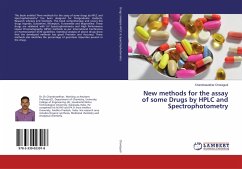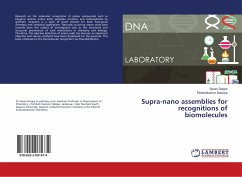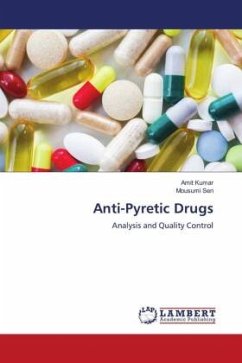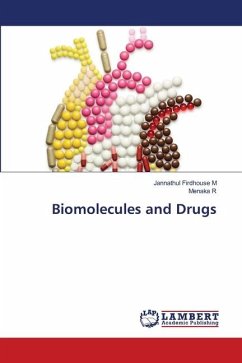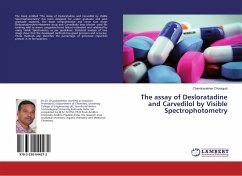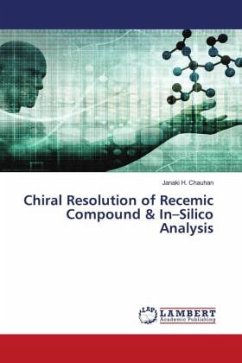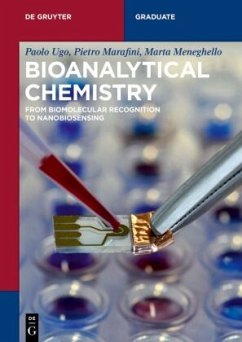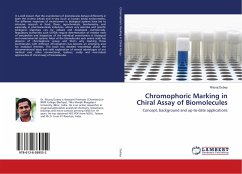
Chromophoric Marking in Chiral Assay of Biomolecules
Concept, background and up-to-date applications
Versandkostenfrei!
Versandfertig in 6-10 Tagen
37,99 €
inkl. MwSt.

PAYBACK Punkte
19 °P sammeln!
It is well known that the enantiomers of biomolecules behave differently in both the in-vitro (chiral) and in-vivo (such as human body) enviornments. The different responses of enantiomers in biological systems have led to intensive research in food, flavor, agrochemicals, biochemistry, and especially, in pharmaceuticals industries, where very selective and specific biological responses can be utilized and developed commercially. Regulatory authorities such USFDA require determination of relative rates of metabolism and dissipation of the individual enantiomers in biological and environmental ...
It is well known that the enantiomers of biomolecules behave differently in both the in-vitro (chiral) and in-vivo (such as human body) enviornments. The different responses of enantiomers in biological systems have led to intensive research in food, flavor, agrochemicals, biochemistry, and especially, in pharmaceuticals industries, where very selective and specific biological responses can be utilized and developed commercially. Regulatory authorities such USFDA require determination of relative rates of metabolism and dissipation of the individual enantiomers in biological and environmental systems. Most of the biomolecules such amino acids has absence of chromophoric group and that's why marking those biomolecules with different chromophors has become an emerging area for analytical chemists. This book has detailed knowledge about the aforementioned topic and valid explanation of several advantages of our method over other conventional, tedious, costly and non-robust approaches of chiral assay of biomolecules.




